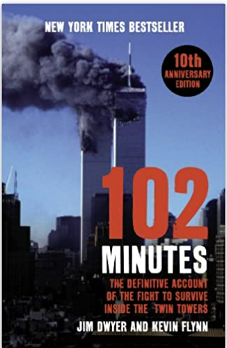One huge takeaway from the book is just how unorganized the rescue/evacuation effort was both because of the animosity between the NY fire department and police department, the two agencies' unwillingness to work with each other, and the poor design of the buildings. The trade center towers were allowed to be built ignoring existing code standards so that there were not enough stairways, the stairways were bunched together (and in portions were totally destroyed trapping people), and without much thought of evacuating disabled people who could not easily use the stairs. Also complicating the evacuation efforts were conflicting instructions being given by the 911 operators, with some telling people to get out immediately and others telling people to stay where they are and wait for rescue crews to get them. And, in the case of the South Tower, in which there was one passable stairway that people above the impact zone could use if they could get to it, was never communicated, in large part because much of the tower's PA system was knocked out. The book also details issues with the fireproofing and sprinkler systems in the buildings failing that allowed exposed steel to weaken which would eventually lead to the collapse of both towers.
The emotional punch really comes from the story of the people. If you have watched many of the 9/11 documentaries or read some of the other books written about 9/11 you may have heard some of the stories already. But there are some, like the heroics of Frank DiMartini and Pablo Ortiz who helped many people trapped on the floors just below the impact zone in the North Tower who were otherwise trapped because of jammed doors or debris get to the stairways, that has not been told in as much detail as they are in this book. The book also details many of the pleas for help that the people trapped above the impact zones with no way out were making as the smoke and fire were getting closer to them.
The book is not extremely long, just 263 pages of the main text, and then about 30 pages of endnotes. The endnotes are mostly just citing sources, but some of them do have additional detail. So, they would have worked much better as footnotes because they would have been easier to match up with the corresponding text. I definitely consider this one of the must-read books about 9/11.






